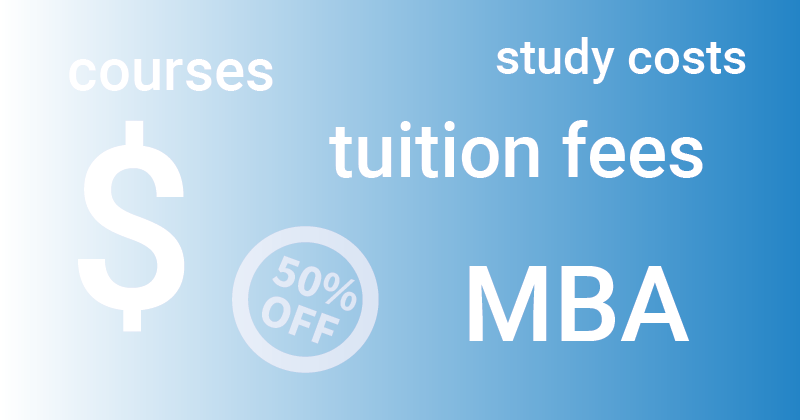In some ways, a Master of Business Administration is tough. You need the time, financial resources, intellectual capacity, experience and energy to get through the program. But how hard is an MBA really?
You don’t have to be academically brilliant to get an MBA. While a certain level of cognitive intelligence is required, emotional intelligence is likely as important. You need to be able to organise yourself, including your schedule, and find motivation.
Difficulties can be minimised or avoided by approaching MBA studies the right way. Let’s go through the main challenges of getting the degree and how to overcome them.
Is Putting In the Weekly Study Hours Difficult?

Finding the time each week for MBA classes could be easy or difficult depending on your commitments and personal life. But, as long as you have some free time, you can make an arrangement that is manageable. Online study is a popular way to balance study with work and other activities.
Let’s assume you attend a campus. For a full-time load of four subjects, you’re looking at about 30 hours of study each week to get decent grades. That’s perfectly doable as long as you don’t work or only work part-time.
Suppose you study part-time on campus, halving your study hours to 15 hour a week. This arrangement would still be difficult to combine with full-time employment. Time travelling to and from classes would add extra hours and would potentially be exhausting. To work full-time, you really need to look at part-time work hours or becoming an online student.
A rule-of-thumb for getting an MBA is that you need 7.5 hours per week for each subject. If it’s an online part-time course with several study periods annually, about 10 hours per week for each subject is needed. Adjust these times if you study especially fast or slow.
Many, if not most, MBA students now choose to do online programs. They also normally do one subject at a time, meaning they put in about 10 hours weekly. These hours can be scheduled any time, including evenings and weekends.
Students enrolled in online courses are able to keep working. US News estimated that 91% of online MBA candidates had full-time jobs. Many part-time students are parents as well. They prove every week that it’s possible to get a master’s with limited time if you have good time management skills.
Related: What Do You Learn in an MBA?
How Hard to Grind Through the Program?

An MBA is a significant investment of time, as it should be considering the career benefits. Traditionally, an MBA takes 4 semesters (2 years) of full-time study in the United States, or 3 semesters (1.5 years) in Australia or the UK.
How well you cope with the demands of a graduate degree, even with a light weekly load, depends on your motivation to succeed and how much you enjoy the subjects. Often, masters candidates find they have better discipline and focus when returning to university study compared to when they were undergraduate students.
A suggestion for anyone nervous at the idea of committing to an MBA is to start with a Graduate Certificate in Business Administration or other course embedded within the program. Completing the first four subjects of a 12-subject MBA qualifies you for the graduate certificate.
You might find that you have good study momentum after the graduate certificate component and continue on. At worst, you stop one-third of the way through an MBA and still leave with a graduate qualification.
Accelerated online MBA programs are available to speed things up. Students study through the year, avoiding long breaks and exam periods. You can put in just 10 hours a week most weeks and finish inside 24 months. One-year fast track MBAs are also offered online.
Related: Is an Online MBA Worth It?
Is the Cost of an MBA a Big Disadvantage?

You might feel like MBA programs are daunting because of the financial outlay required. Even for lean online MBA degrees, tuition fees are in the range of $18K to $50K USD. If you take time off work, you could also be sacrificing a large amount of salary.
One way to counter the cost disadvantage is to have your employer pay for your studies while also keeping you in full-time employment. See our tips to get your company to pay. In the United States especially, financial aid is also available for many programs.
Even without employer sponsorship or financial aid, you can take out a loan to avoid having to pay anything up front.
- US citizens and permanent residents can apply for two types of loans: Direct Unsubsidized Loans and Grad PLUS Loans.
- International students in the USA can obtain private loans, generally under the requirement of having a co-signer who is a U.S. citizen.
- In Australia, the Australian Government offers FEE-HELP loans for locals. Providers sometimes have loan facilities as well.
While the financial investment may be significant, you also have to remember that the payoff is often far larger. An MBA education represents a one-off sunk cost. If the degree helps you achieve your career ambitions or grow a business, you could reap higher earnings for many years to come.
Related: Disadvantages of MBA
Can an Average Student Do an MBA?

Yes – An average student can do an MBA. You don’t need a business degree, or any degree for that matter in some cases, and you don’t have to be a top student. You also don’t require a business background since the course is about learning management skills that can be used anywhere.
But, if you’re not strong academically, here are a few things to bear in mind before enrolling.
Expect academic standards may be similar to bachelor degrees
The good news is that, generally speaking, graduate schools are not much different from undergraduate university in terms of academic difficulty. If you were comfortably passing your subjects in a bachelor degree, expect to be able to continue that.
Instructors don’t dramatically ramp up standards just because a course is postgraduate. Also, MBA programs tend to be orientated around project work relative to undergraduate studies. You should pass if you put in reasonable effort.
You will learn during your MBA, your attitude makes up over 50% of your professional success. MBA is as difficult as you make it, and is as rewarding as you invest in it. In the business world, there is rarely any hand-holding.
Shagun Singh
Choose courses carefully if you are weak at maths
An MBA program teaches management and leadership but will also cover other business topics such as finance and business analytics. If you’re weak at maths, make sure you choose a business school that doesn’t have technically difficult core subjects.
An MBA is an option for math-averse students. But, if you haven’t done much maths since high school, you might find yourself in classes where you struggle to keep up. Check individual subjects to see what, if any, technical content they contain.
How you can do an MBA without a bachelor degree
Some business schools offer MBA programs without requiring a bachelor’s degree. Applicants must show professional capability, often needing at least 5 years of experience. In Australia, candidates can start with a Graduate Certificate in Business Administration, which can lead into the full MBA program if successfully completed.
GMAT Scores for the Top Graduate Schools

The hardest part about an MBA at your dream business school might actually be getting admitted. You may need to achieve a high GMAT score. Only a minor proportion of business school apply a Graduate Management Admission Test (GMAT) minimum test score, but these include many of the top universities.
Studying for the GMAT took a while. But the actual program was not difficult at all. Sometimes we had lots of stuff to do, but the assignments were not intellectually rigorous.
—Reddit user
Here are some examples of minimum required GMAT scores.
- 720-740: Stanford, The Wharton School, Harvard Business School, Booth Business School
- 700-720: Michigan Ross School of Business, Darden Business School
- 680-700: Foster Business School, Georgetown University
- 660-680: Michigan State University, Ohio State University
- 640-660: Penn State University
Using MBA admission consultants can ease the challenge of entering a good business school. They streamline the application process, saving you time and offering expert guidance on GMAT prep, essays, and interviews. Their insights provide a competitive edge, making their services a strategic investment for your career goals.
It is also reassuring to know that most programs don’t require a GMAT (or GRE for that matter). Typically, the essential entry requirements are that you (a) hold a bachelor’s degree in any discipline and (b) have multiple years of relevant work experience. Even without a degree, you may be admitted based on an extensive work history.
English language requirements will apply if the business school teaches in English. If you don’t automatically pass based on citizenship or work history, the Stanford Graduate School of Business accepts three English-language proficiency tests: Test of English as a Foreign Language (TOEFL), International English Language Testing System (IELTS), and Pearson Test of English (PTE).
When Can You Start?

In a technical sense, you can start an MBA after gaining two years of professional experience. Almost all programs require applicants to have relevant experience. Two years is a fairly common minimum.
Starting in your early to mid 20s can put you at a disadvantage however. You will be less familiar with management challenges and strategies than if you waited. The courses commonly ask students to discuss concepts in the context of their own experiences. You also want to enroll for the right reasons, one of which is to take your management skills to the next level by reflecting on your professional successes and failures.
You will need at least two years of work experience for an MBA program. Most MBA programs typically require between two to four years of work experience in order to apply (the average MBA student enters with about five years of professional experience). Some of the top business schools can even require up to seven years.
Augsburg University
In general, you should start an MBA when you feel the time is right. Being younger, with relatively few work and non-work responsibilities, may make study logistically easier. But often candidates commence when they start to feel management studies will refresh and revitalise their career. MBA graduates should be more than a product of college education; they should also be experienced enough to succeed in diverse management roles.
Related: Should I Do an MBA Now? 7 Questions to Ask Yourself


Tayyaba
Fake and purchased comments
Lerna
Thanks for your feedback. We’ve removed some comments that look dodgy.
Melissa J.
Let’s face it, business schools don’t want push-back and students withdrawing, so are reluctant to fail people without good reason. You should be able to pass without too much effort.
Mike
Your article has provided me a great insight about doing an MBA, in and out. I think doing an MBA is worth it, not only does your job gets better and your salary increase but you learn a lot too, you can use that in having your own start-up. I have gained a lot of knowledge from this article, really helpful, thanks.
Jean Nicole
As someone coming from a healthcare career who wants to understand the business side of things more concretely, I always assumed that to get an MBA you would need a business or economics degree. Its great to know though that someone like me with not much of a background business wise would still be able to take it! (And of course, survive it!)
Sara Green
I would say that it is only hard if you cannot manage your time and keep focus. It is a lot of work but most people who are goal-oriented can achieve an MBA with relative ease. It just takes time! I am glad to see stuff like this. It encourages people to strive for more.
Felix
I think an MBA degree is beneficial in terms of career growth if you are in a corporate job. I’ve noticed a lot of my friends who are more entrepreneurial in nature steer clear from an MBA. I guess its more of a to each his own thing but it may help to identify what path you set your career in.
Kelly
Obtaining an MBA is really not as far out of reach as a lot of people have been led to believe. I know when I was in school still, they made it seem like you really had to be confident, strict, and able to commit more hours of the day than there were to get that degree. These days, you can get one online which is an amazing option for those students who need to work whilst going through higher education.
Morgan Christopher
This article is spot on about emotional intelligence being just as crucial as academic ability. It’s not all about academics. Attitude and strategy play a huge role as well.